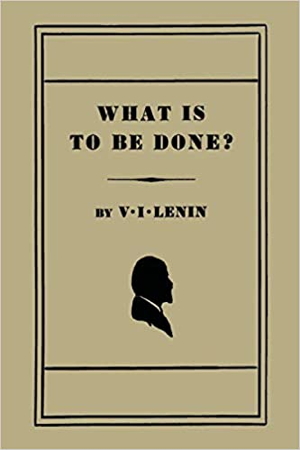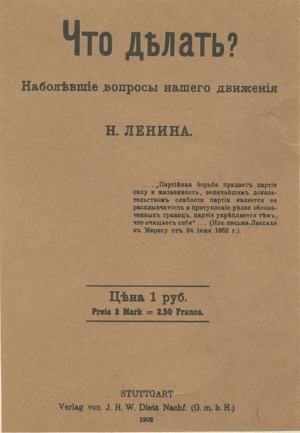
When I think about the great free trade movement in England in the 1840s, what drove its supporters to oppose protectionism was not a deep knowledge of the intricacies of comparative advantage or the geographical specialisation of production, but a moral sense which we lack today. This moral sense cuts in two different directions. On the “positive side” there was the idea that you looked after yourself and your family and did not go looking for government handouts, that you got paid for supplying someone with a benefit in some voluntary exchange, and that nobody owed you a job or a living.
On the other hand, there was a kind of “negative” side to this moral feeling, namely that the people who sought benefits and government protection were part of an exploiting class who were looting ordinary people for their own “sinister” interests, and that these interests controlled the Parliament and would continue to exploit ordinary people until they were stopped. This provoked moral outrage among people back then, but not now. I see neither of these moral sentiments being expressed anywhere today, which is my main reason for despair.
What happened in the 1840s was the rise of a handful of skilled “intellectual” and “political entrepreneurs”, like Richard Cobden in England and Frédéric Bastiat in France, who were able to bring together the theoretical economic ideas on free trade of Adam Smith and Jean-Baptiste Say, the moral outrage of large numbers of people at the injustices of the policies of trade subsidies and protection for a few at the expence of the many, and a political organisation which was able to mobilise these people and successfully lobby Parliament for change. The result was success in England in 1846 with the abolition of the Corn Laws, which ushered in a unprecedented period of of free trade in England which lasted up until the First World War, and a somewhat later success in France in 1860 with the passage of the Cobden-Chevalier Trade treaty between France and England
Fast forward to the present, and when we look out over the political playing field the most prominent and most successful players are those who are playing in the “Socialist League” not the “Liberty League”. In my opinion, the seven very strong teams playing in the Socialist League are, in order of historical precedence, the military socialists (who run the Military-Industrial-Complex, fight wars overseas, and run the bases), the intelligence and surveillance socialists (or perhaps they would be better termed “fascists”), the Keynesian Socialists, the Cultural Marxists, the Green Socialists, and a new team called the “Hygiene Socialists”.
It is instructive to reflect on how these groups came to be the powerful players they now are, and why “our” team seems to have foundered. So, I look back to when I was at high school in the early 1970s when the Green (environmentalist) movement was just getting started and what they have achieved 45 years later. One could probably trace the key ideas of the movement back to seminal books published in the 1960s like Rachel Carson Silent Spring (1962) and Paul Ehrlich, The Population Bomb (1968). The first “Earth Day” took place in 1970 and when I was at high school teachers were organising “teach ins” to spread the ideas of the environmental movement among the students. Eventually these students went on to start Green Parties in Europe (Germany in 1980) and Australia (1992) which grew into very influential political players, sometimes controlling the balance of power in the legislature. The German Greens got 9% of the vote in 2017, and the Australian Greens had the balance of power in the Senate with 9 senators in 2016. Thus, the “green socialists” are now reaping what they sowed back in the 1960s and 1970s and have cultivated assiduously ever since.
What do we have to show for all our intellectual and political activity? Remember Friedrich Hayek won the Nobel Prize for Economics in 1974 and the Harvard political philosopher Robert Nozick published “Anarchy, State, and Utopia” in the same year so we had reasons then to believe that “our wave” might be close to reaching its crest. And then Thatcher and Reagan came to power in 1979 and 1980. But these signs of change soon fizzled out.
A second powerful group has also been with us since the 1960s, namely the “Keynesianian” socialists who have taken over the economics departments of the universities and the central banks in every country. The intellectual roots of this group is of course John Maynard Keynes’ influential treatise The General Theory of Employment, Interest and Money published in 1936. The strength of Keynesian ideas were revealed very clearly during the Global Financial Crisis of 2008-9 when any notion of sound money and restraint in the issuing of debt was swept aside in the mad rush to “save” the banking and financial system. This is now being repeated in 2020. What is depressing is how every single person in the West has accepted at face value that the government can and should hand out trillions of dollars of “relief” for the duration of the Covid-induced lockdown, even so-called “conservative” governments like Scott Morrison’s in Australia. This boils down in my view to the popularly held idea of “economic magic”, that governments can wave their Keynesian monetary wand and create wealth out of nothing and give it to the voting masses, who lap it up and want more. The polls show that public support for these measures are very high – in the 60s and 70s%
This is not the time nor the place to discuss the other groups who threaten liberty, the “Cultural Marxists”, who have taken over the universities since they first began infiltrating them in the late 1960s and 1970s; the members of the “warfare state” and the intelligence services which emerged during and after WW2 and have never gone away.
We now come to the newest group which has emerged with such suddenness and force over the past few months, what I have called “hygiene socialism”. This is nothing new. Hebert Spencer warned about a similar threat to liberty in 1851 in his book Social Statics by what he called “sanitary supervision” (See Herbert Spencer on the State and “Sanitary Supervision” (1851) .) In the 1970s the American psychiatrist Thomas Szasz warned us about the misuse of psychiatry with the rise of “the therapeutic state” where he argued that the state frequently and increasingly was using “mental health” to incarcerate and control people, in particular “dissidents” in the Soviet Union. It is not a big step to extend his analysis to the emerging “hygienic state” where the state for “public health” reasons claims justification to control every aspect of our personal and economic lives. And it silences dissidents with the help of Twitter and Facebook and not the political police – although the Victorian police in Australia have recently acted as though they were such a police force.
When one lines up the groups which are now appearing to come together in a “united front” against individual liberty – environmental, monetary, cultural, and hygiene socialism – with talk of the need for a “global reset” one wonders “what is to be done?”. This was the title of an important pamphlet Lenin wrote in 1901 which inspired Rothbard to ask the same question in 1977.

I have spent the last month thinking a lot about strategy for the libertarian movement in these depressing times (see the list of additions to my website for the month of November. I have my own theory of the “structure of production of ideas” and the kinds of institutions and activity which is required at each of the stages, starting with the “higher stages” of the production of pure theory (organisations like the “old” Liberty Fund and the universities) , down to the “lowest stages” of the “consumption” of ideas in popular culture and in elections.
Back in 1976-77, Rothbard, Ed Crane, and Charles Koch were exploring strategies for the development of organisations in the “middle” to “lower” end of this structure of production with the Cato Institute and the Libertarian Party which would operate out of that hotbed of Libertarian activity, the city of San Francisco. This flurry of activity produced a series of papers given at a conference Rothbard and Charles Koch organised in NYC in 1976. I have recently acquired copies of these papers which are very interesting and thought provoking.
I was given a copy of Rothbard’s long paper on strategy which he wrote in 1977, “Toward a Strategy for Libertarian Social Change” (April, 1977), in the early 1980s. I put my copy online (missing a few pages unfortunately) about 10 years ago which has been completely ignored. I also recently acquired a new clean and complete copy of Rothbard’s paper which I put online in facs. PDF as well as HTML which I hope will get greater circulation. Rothbard drew upon the research produced in the 1976 conference papers and added his own thoughts about the model for successful political change which was provided by the rise of popular mass parties like the Bolshevik Party in Russia and the Nazi Party in Germany. His “Leninist” political strategy is deeply flawed in many ways, but to his credit, he was and still is one of the very few libertarian theorists who has thought about these issues in any coherent fashion.
So, I am not sure where that leaves me or the libertarian movement. Perhaps where I started in 1972-73. What a depressing thought.

Pingback: Some Covid Links - Cafe Hayek
Pingback: Actual Rather that Tweet Tyranny - Cafe Hayek